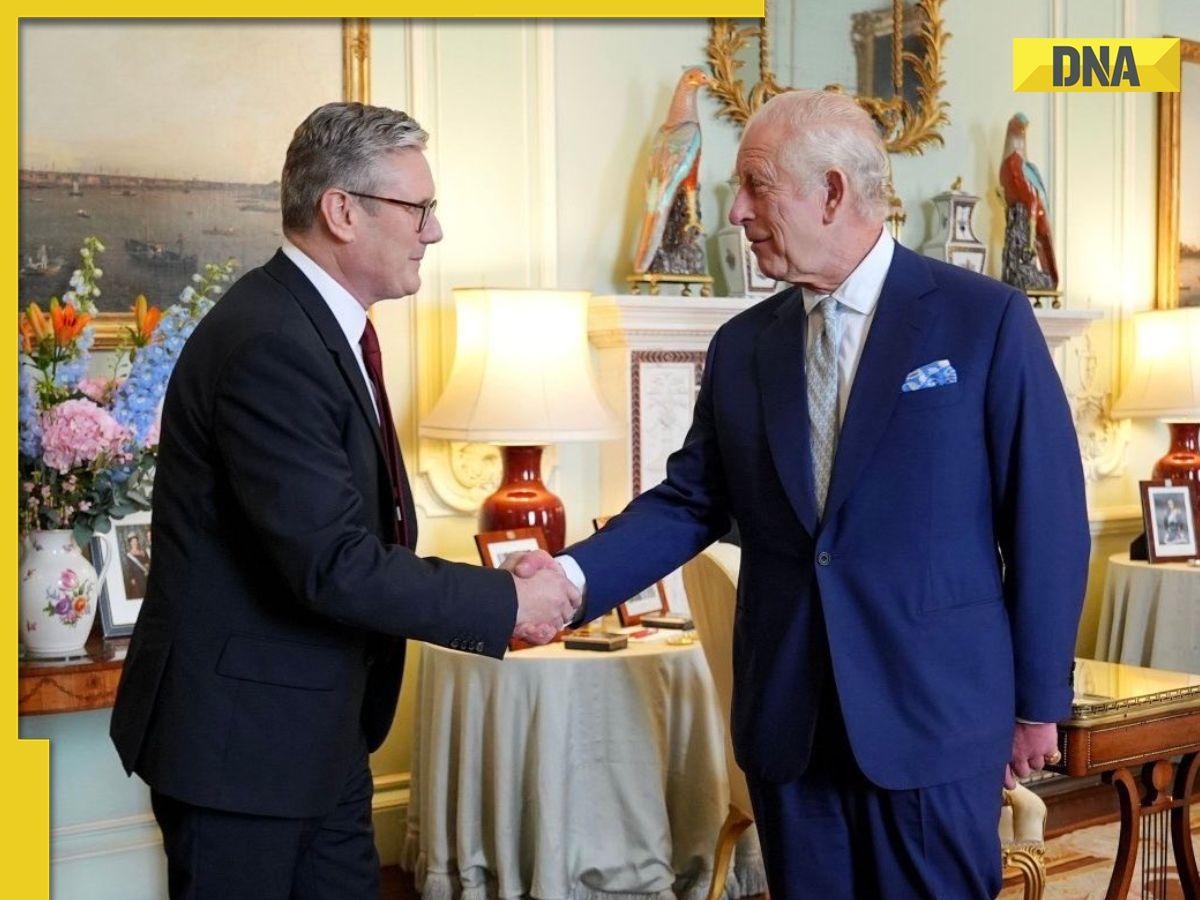
In a historic event that marks a new chapter in British politics, Keir Starmer, the leader of the Labour Party, has been officially appointed as Britain’s new Prime Minister. The appointment came after a ceremonial ‘kissing of hands’ with King Charles III, a time-honored tradition that solidifies the transition of power.
The new premier met with King Charles III following his landslide victory in Thursday’s parliamentary election. The Labour Party swept to power with a commanding majority, marking a significant shift in the political landscape of the United Kingdom. Voters from all over the country turned out in unprecedented numbers, signaling a clear mandate for change and a departure from the policies of the preceding government.
As he transitioned into his new role, Keir Starmer expressed his gratitude to the electorate for their confidence and support. Addressing the nation, he emphasized the importance of unity and pledged to tackle the pressing issues facing the country head-on. “Today, the real work begins,” Starmer declared. “We have been given a mandate by the people to deliver real change, and that is exactly what we intend to do. Together, we will build a fairer, more just society for all.”
King Charles III, known for his keen interest in political affairs, welcomed the new Prime Minister in a formal ceremony at Buckingham Palace. The ‘kissing of hands’ ceremony is a symbolic gesture that emphasizes the constitutional relationship between the monarchy and the elected government. According to tradition, the monarch invites the new prime minister to form a government in their name, symbolizing the continuity of governance and stability of the kingdom.
The Labour Party’s victory marks a new era after a prolonged period of Conservative rule. Political analysts attribute Starmer’s success to his clear vision, strong campaigning, and the party’s commitment to addressing key issues such as healthcare, education, and economic inequality. The electorate, disenchanted with years of austerity and political scandals, found in Starmer a leader who resonated with their aspirations and concerns.
One of the critical factors in Labour’s triumph was its comprehensive and ambitious manifesto. Starmer’s promises to invest in public services, revitalize the NHS, and implement significant climate policies garnered widespread support. In addition, the Labour leader’s promise to raise the minimum wage and address the housing crisis struck a chord with many voters who felt left behind by previous policies.
.
The journey to 10 Downing Street was not without its challenges. Starmer, a former human rights lawyer and Director of Public Prosecutions, faced criticism and scrutiny throughout his political career. However, he maintained a steadfast focus on his objectives, often highlighting his deep commitment to justice, fairness, and the rule of law. His background and professional experience were significant factors that helped shape his approach to leadership and governance.
The international community has keenly observed this political shift, with many world leaders already sending their congratulations and expressing optimism for future cooperation. The European Union, in particular, has shown an interest in rekindling a more collaborative relationship with the UK, one that may potentially ease some of the tensions and uncertainties brought about by Brexit.
On the domestic front, there are high expectations for the new administration. With the Labour Party’s robust majority, Starmer has a broad mandate to implement his policies swiftly. His cabinet appointments, expected to be announced in the coming days, will be a critical indicator of his administration’s priorities and the strategies it will employ to address the myriad challenges facing the country.
One of the immediate concerns on Starmer’s agenda is the ongoing economic recovery following the global pandemic. The new Prime Minister has vowed to support businesses and workers alike, aiming to foster a more resilient and inclusive economy. Additionally, with pressing issues such as climate change, social justice, and public health, Starmer’s government faces a formidable task ahead.
Reacting to his appointment, members of the Labour Party expressed their excitement and readiness to support Starmer’s vision. Shadow Chancellor Rachel Reeves stated, “We are at the beginning of an extraordinary journey. The people have spoken, and it is our duty to listen and to act.” Other key figures in the party echoed similar sentiments, highlighting their commitment to working collaboratively to achieve their goals.
In summary, Keir Starmer’s appointment as the new Prime Minister of the United Kingdom marks a pivotal moment in the country’s political history. As he takes the helm, the nation watches with both hope and anticipation, eager to see the changes and reforms that will shape the future of Britain under his leadership.












